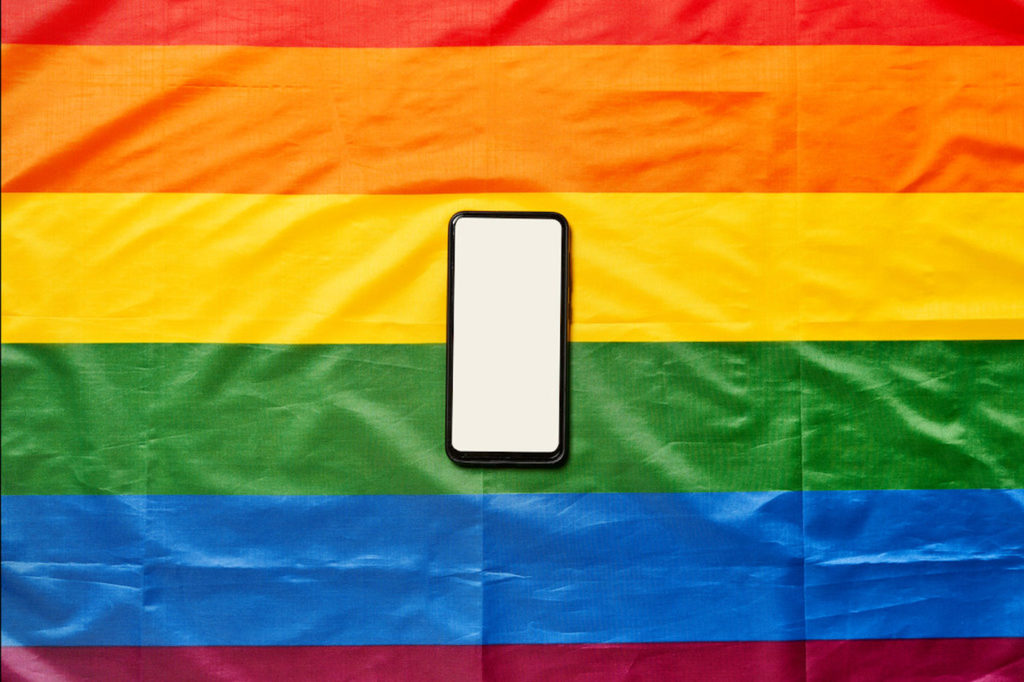Social media platforms like Facebook, Instagram, Twitter, YouTube, and TikTok are exacerbating the fixation on sexual identity and sexual liberation that defines modern culture. In his book The Rise and Triumph of the Modern Self, Carl Trueman aptly describes our current ills as expressive individualism, and examines the underlying philosophical causes that have given rise to them. Trueman, a Christian theologian at Grove City College, explains how we arrived at the “triumphs of the erotic, the therapeutic, and the transgender.”
In this article, I want to explore Trueman’s insights further by considering how modern technology, in the form of social media, has exacerbated these trends. By shedding light on technological factors, I hope we can become wiser in thinking about how to counter the disturbing modern “triumphs” that are antithetical to Judeo-Christian understandings of sex, gender, marriage, and the family.
I will highlight four ways in which social media have contributed to this sexualized era of the modern self: 1) creating infinite space and opportunity for expressive individualism; 2) fostering an environment of celebration and affirmation of sex as identity, particularly transgenderism; 3) censoring speech that is “harmful” to today’s privileged sexual identities, and inflating the meaning of victimhood; and 4) promoting the “pornification” of culture through increasingly extreme online pornography.
Facilitating Expressive Individualism
Start your day with Public Discourse
Sign up and get our daily essays sent straight to your inbox.At its core, expressive individualism claims that we find our meaning by expressing our own feelings and desires. In a culture of expressive individualism, institutions cease to be places that form culture and mores. As Trueman has noted, institutions instead become “platforms for performance” for individuals to give expression to who they are “inside.” That is precisely what social media—young people’s main channels of communication—are doing today. Social media give individuals personal platforms for self-expression.
With everyone having their own platform, there are infinite opportunities for self-projection—to broadcast experiences, feelings, ideas, desires, and beliefs out to the universe. There is no limit on how much you can post. And all this happens in the virtual world of the internet, rather than by in-person interactions, which means users can present highly manicured and unrealistic versions of themselves.
The very design of social media platforms is to foster self-preoccupation by appealing to our desires for attention and approval.
The very design of these platforms fosters self-preoccupation by appealing to our desires for attention and approval. And that is precisely how these companies design their algorithms: to maximize addiction among users and keep them engaged as long as possible. They want people to live their whole lives online, so they can generate as much ad revenue as possible by extracting your time, attention, and data to sell to advertisers. Social media monetized a vision of life as performance, which has rapidly accelerated the modern trend of expressive individualism.
Sex as Identity
The irony of expressive individualism, however, is its concomitant demand for recognition from others. The logic of self-expression insists that an identity, once projected, requires others’ validation. And social media are perfectly designed to reinforce cravings for affirmation. When Facebook invented the “like” button in 2011, it only further incentivized an online social environment meant to affirm and approve of others’ self-expressions.
As Jonathan Haidt has explained, “any set of beliefs can be fostered in a community completely separate from any objective reality.” Increasingly, that “set of beliefs” severed from “objective reality” and imposed through social media consists of LGBTQ+ ideology. Receiving recognition of my sexual identity is as simple as someone’s liking my post about coming out or transitioning. Low-effort approval means that I can fairly expect and demand recognition from online peers. Mere tolerance of sexual identities is not enough now; full recognition of the legitimacy of certain nontraditional sexual identities by wider society is demanded.
In creating an environment for celebrating sexual identity, social media platforms have played a leading role in the triumph of the transgender movement. In her book Irreversible Damage, Abigail Shrier has a chapter on “The Influencers,” explaining how the transgender craze affecting today’s teenage girls is due in large part to the rise of transgender influencers on social media. Most teens who transition develop body dysmorphia by watching videos of trans influencers on Instagram and TikTok. Since trans influencers are so celebrated and promoted on social media, many teens fall for narratives the influencers are selling: the lie that transitioning will solve all their problems.
Censoring “Harmful” Speech
In order to create a therapeutic online environment for today’s privileged sexual identities, social media companies have found it increasingly necessary to censor so-called “harmful speech.” As Carl Trueman has explained, when selfhood and identity become psychological, harm becomes a much broader and more subjective category. As the idea of selfhood shifted from something necessarily embodied to something primarily mental, so too did what constitutes an assault on the self. Oppression is now a psychological category, so words and ideas become the most powerful weapons available. Words and images that challenge today’s accepted psychological notions of the self must be censored or silenced. To cite just one recent example, Twitter suspended the account of The Babylon Bee for the editors’ refusal to delete a tweet that jokingly named Rachel Levine, the transwoman Assistant Secretary for Health, “Man of the Year.” They were censored for the simple offense of labeling a biological man a man.
Social media platforms now play a critical role in “protecting” the privileged sexual identities from the “trauma” of encountering differing points of view through their censorship and suppression of free speech.
What about free speech, then? The “New Left” has little interest in preserving such antiquated ideals. According to critical theorist Herbert Marcuse, “reopening [democratic society] may require apparently undemocratic means. [These means] would include the withdrawal of toleration of speech . . .” If we are to protect the various identities that enjoy privileged status in the world of the psychological man, free speech is a problem. Only by restricting speech will the marginalized voices of the oppressed be heard. The same is true for religious liberty. Far from enjoying a privileged status, religious liberty is now a form of psychological oppression that must be squashed. To cultivate the “right” form of political consciousness, speech and religion must be carefully regulated.
Big Tech seems to have gotten the memo. Social media platforms now play a critical role in “protecting” privileged sexual identities from the “trauma” of encountering differing points of view (e.g., traditional Christian views on sex, gender, marriage, the family, etc.) through their censorship and suppression of free speech. What constitutes harmful speech? Silicon Valley elites determine what counts as rational judgment versus irrational animus.
The “Pornification” of Culture
While social media platforms have chosen to censor certain “harmful” speech, they have at the same time allowed pornography to proliferate on their platforms. And in so doing, they have vastly contributed to the “pornification” of culture by expanding the reach, acceptance, and ease of access to porn that is increasingly violent and extreme. Social media have often downplayed the role they play as a first-entry point to pornographic websites, especially for minors and children. The fact that Big Tech removes certain speech (namely conservative, Christian positions) but allows truly harmful pornographic content to proliferate illustrates that Big Tech companies are out for their own profit. They can generate more revenue by allowing pornography to flourish, so they do, knowing that often children are abused and exploited in it and that children and teens on their platforms can encounter it.
But there is a deeper social significance to all of this pornography circulating online. The widespread amount and use of online pornography has “pornified” our culture at large. To take two recent examples, the Wall Street Journal explained how full frontal male nudity has gone mainstream as the latest trend in Hollywood movies. In commenting on this disturbing trend, Juliet Williams, a professor of gender studies at the University of California, Los Angeles says, “Everybody is sexually objectified, and that weirdly registers as equality today.” And pornography has trickled down into today’s advertising and marketing. Adidas recently launched a new sports-bra campaign with an unusual image: a grid of twenty-five sets of bare breasts. The image appeared on Twitter, on at least one billboard, and in modified form on Instagram. Big Tech clearly had no problem promoting such nudity to all its users.
Big Tech, in its promotion and distribution of pornography, has helped the erotic reach its triumph.
The pornification of mainstream media reinforces the message that sex is all about individual satisfaction. It also endorses the idea that sexuality is the self’s most important quality. If freedom and happiness are epitomized in sexual satisfaction, pornography becomes the easiest and least personally costly medium for sexual liberation. Sex, in this view, has no intrinsic moral content. Big Tech, in its promotion and distribution of pornography, has helped the erotic reach its triumph.
Are Big Tech and social media entirely to blame for the triumphs of the erotic, the therapeutic, and the transgender? Of course not. But there is no question that the dominant social media companies have seriously contributed to these trends. Online interactions have become the most effective vehicle for advancing the agenda of “sexual liberation” today. Big Tech companies have played an outsized role in creating and exacerbating the perfect conditions for the trends of the era of the modern self.
The Path Forward
Policy solutions should hold social media companies legally accountable for censorship of speech and religion and for distributing pornography to minors. To this end, Congress should work to pass a reform to Section 230, the current law that governs the internet, to clarify that companies should have legal liability for censoring users based on their political or religious viewpoint. Section 230 immunity should not be given to truly bad actors, online platforms that purposely facilitate or solicit third-party content, or activity that would violate federal criminal law. Senator Bill Hagerty (R-TN) has also introduced a bill to address the censorship problem taking a common carrier legal approach, called the 21st Century Speech Act. This bill would consider as common carriers any interactive computer service platforms with more than 100 million active monthly users worldwide. This means that these large platforms must then provide reasonable, non-discriminatory access to all consumers.
Congress should also consider passing an age-verification law that would require online pornography distributors to adopt and operate age-verification measures on their platforms or websites to prevent minors from accessing them. Congress should also amend the Children’s Online Privacy Protection Act (COPPA) passed in 1998 to better protect children online.
Lastly, one way to curb Big Tech abuses would be for the Federal Trade Commission or states to take legal action against platforms that abusively market to children. More than forty states have state laws that mirror the FTC Act’s protections, the so-called “Little FTC Acts.” The “Little FTC Acts” allow the states, like the federal government, to take action against companies for their unfair or deceptive trade practices, in order to protect children.
Of course, while legal reforms can stymie Big Tech’s distortions of selfhood, they can’t completely stop the disturbing trends I outlined earlier. Individuals, families, and communities must be vigilant against the predations of social media. We all must be on guard not to fall prey to Big Tech’s addictive designs and the ways they place profits ahead of people. Consider ideas like taking a social media sabbatical, model a good use of technology with healthy boundaries for your children and families, and prioritize face-to-face interactions with others over screens. Doing so will help our culture combat the “triumphs of the erotic, therapeutic, and transgender” by embracing a view of selfhood that is embodied, socially bound, and sexually restrained.














